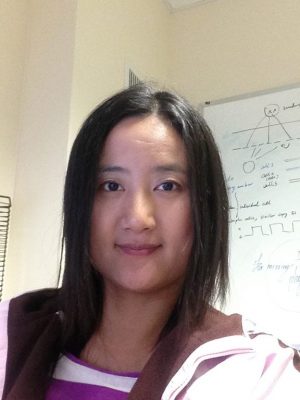
Xian Fan
Rice University
Postdoctoral
Dr. Fan is currently a postdoc in Computer Science department in Rice University. She graduated with a doctoral degree from Computer Science department in Rice University in May 2018. Her PhD and postdoctoral advisor is Luay Nakhleh. During her PhD, she developed extensive experience in analyzing Next Generation Sequencing data through the collaboration with Dr. Ken Chen in MD Anderson.Her research focuses on 1) structural variation detection in (the combination of) a variety of sequencing technologies, including Illumina, PacBio, Optical Maps and 10x etc; 2) single cell sequencing and deconvolution of cancer cell heterogeneity. She participated in developing several widely used structural variation tools including BreakDancer, TIGRA-SV, HySA, CREST and novoBreak. During 2015-2018, she was a member of Human Genome Structural Variation Consortium (HGSVC), where she took the leadership in data analysis of nine individuals’ genomes, which have been sequenced by various technologies.
Research Abstract:
The advancement of the DNA sequencing technology has made it possible to look into one’s genome and investigate the mutations that can cause cancer. In the past decade, a variety of DNA sequencing technologies emerged, each with its own advantages and disadvantages. On one hand, the third generation sequencing (TGS) produces much longer reads. But it has a higher error rate. On the other hand, single cell sequencing (SCS) can trace the evolutionary lineage of cancer cells, facilitating the study of the heterogeneity nature of cancer. But its data is shallow in coverage and noisy. My research goal is to 1) better utilize TGS data to detect structural variations that occur to a large chunk of the DNA; 2) develop algorithms that utilizes evolutionary trees to overcome the shallow and noisy coverages in SCS data to more accurately detect copy number aberrations that changes the number of copies in a genome. The combination of the two facilitates a better understanding in cancer treatment.